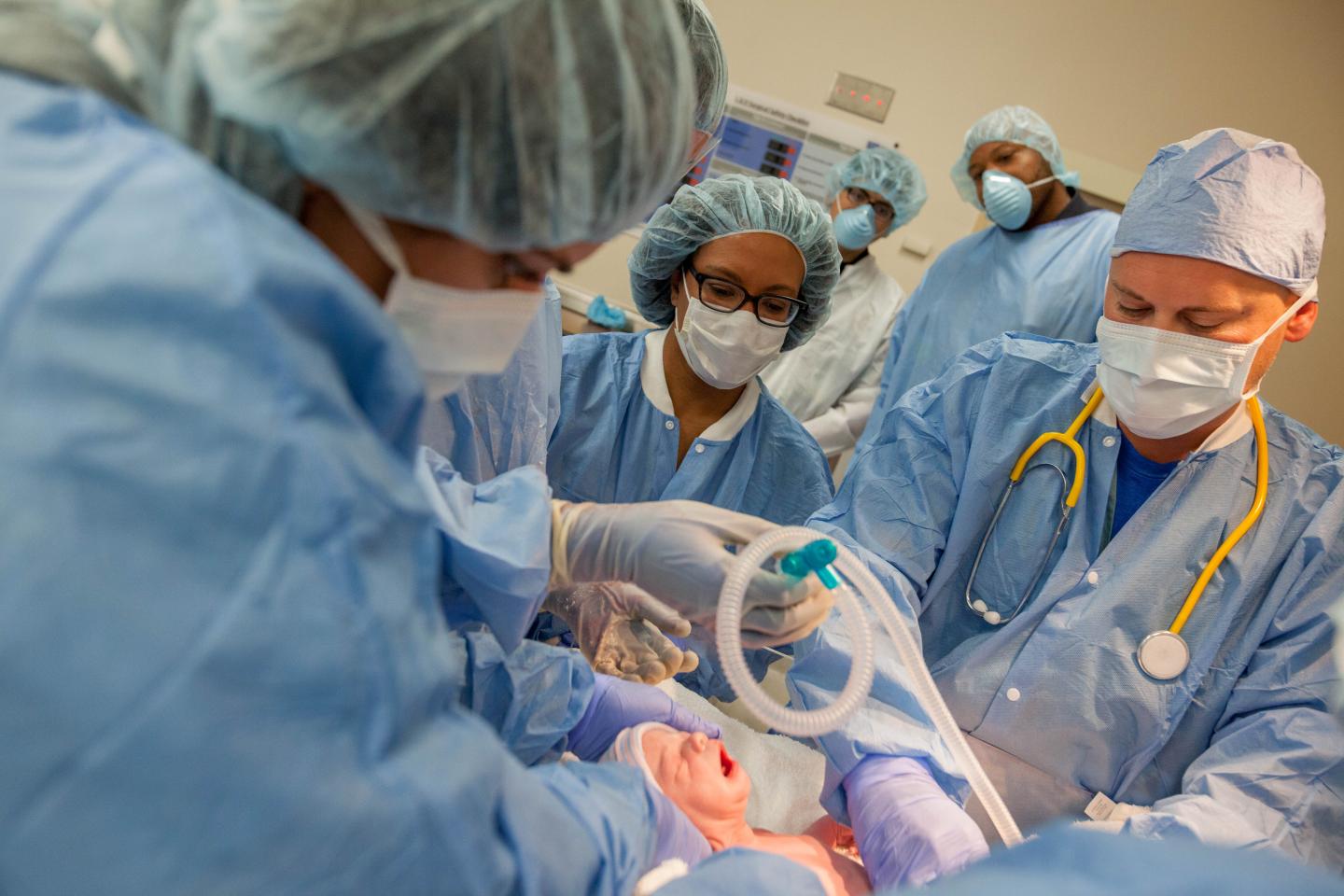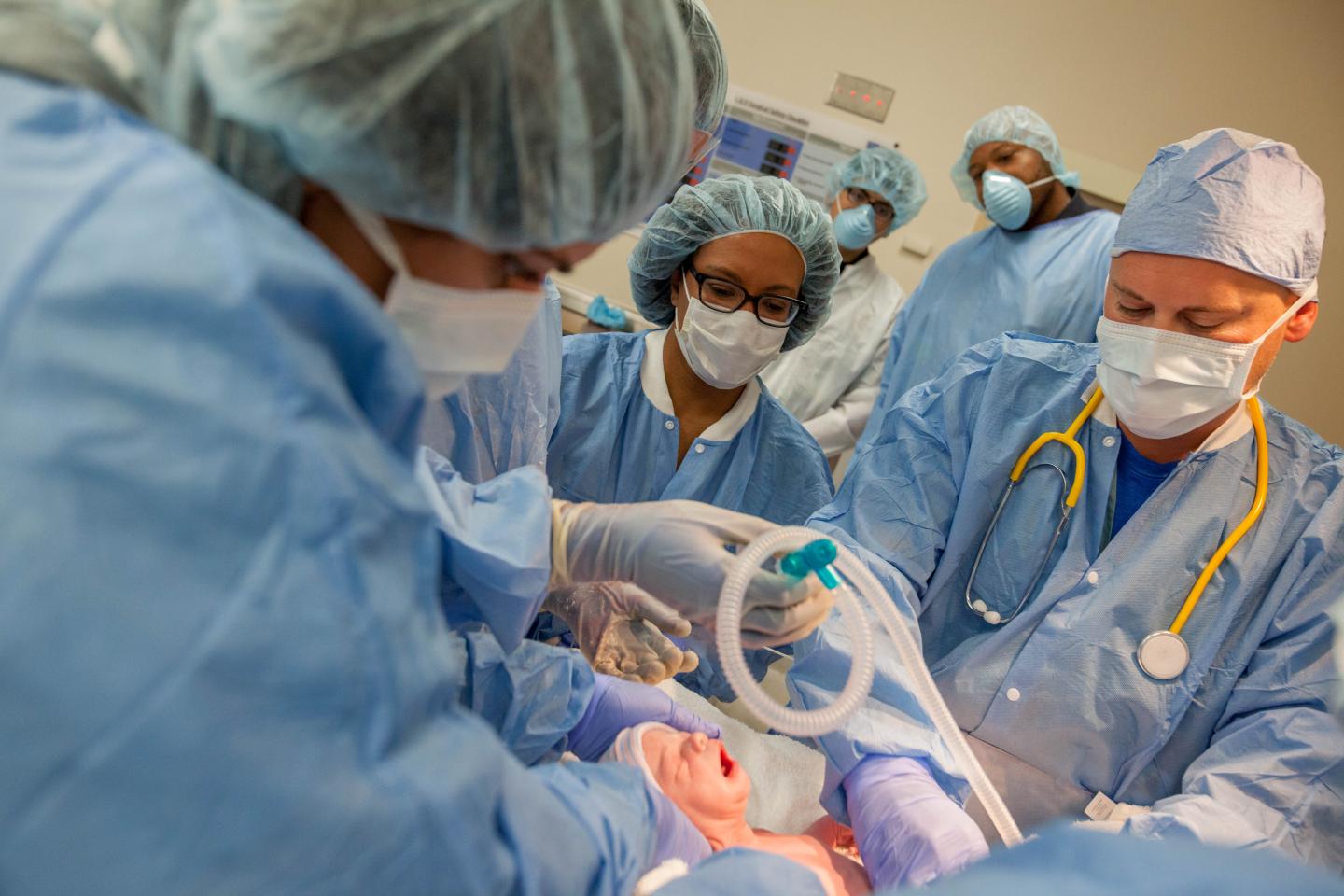
Credit: Sandra Roa
TAMPA, Fla. (April 25, 2018) – It's better to induce than to watch and wait. That's the result of a new study published in PLOS ONE. Researchers at the University of South Florida Morsani College of Medicine found first-time healthy mothers electively induced (artificially stimulated) at 39 weeks are at less risk of cesarean delivery and other serious complications compared to those induced after 41 weeks. Obstetricians generally recommend the procedure at that point since the pregnancy is considered "late-term" and the placenta has more difficulty providing essential nutrients and oxygen to the fetus, increasing the chances of stillbirth and risks to the mother.
There's long been uncertainty about what happens during that three-week timeframe. So USF researchers simulated patient outcomes by creating a rigorous mathematical model based on 100,000 patients, data collected by the National Institute of Health's Safe Labor Consortium. They found compared to elective induction at 39 weeks, waiting to induce labor until after 41 weeks resulted in increased:
- C-section rates (35.9 vs. 13.9 percent)
- Maternal complications, such as preeclampsia and uterine rupture (21.2 vs. 16.5 percent)
- Stillbirths (0.13 vs. 0 percent)
- Newborn deaths (0.25 vs. 0.12 percent)
- Severe neonatal complications, such as respiratory distress and shoulder dystocia (12.1 vs. 9.4 percent)
"Safely preventing primary cesarean deliveries, stillbirths and reducing other perinatal complications are of the greatest concern," said principal investigator Charles J. Lockwood, MD, senior vice president for USF Health and dean of the Morsani College of Medicine. "Sometimes clinicians do something because that is the way it's always been done. These findings demonstrate the importance of strong evidence-based research in informing and shaping standards of care."
###
The study authors conclude they recognize not all women nor their providers desire elective inductions and recommend patients have the final say on the timing and mode of delivery. Lead author Rachel Sinkey, MD, notes more study is needed to address health care system logistics and associated costs. Dr. Sinkey conducted the research when she was a maternal-fetal medicine fellow at USF Health and is now an assistant professor of obstetrics and gynecology in the Division of Maternal-Fetal Medicine, University of Alabama at Birmingham.
The USF findings were recently corroborated by the National Institutes of Health-supported ARRIVE trial, which also found inducing labor at 39 weeks in low-risk pregnant women resulted in fewer cesarean deliveries without a significant difference in health outcomes for mothers and infants.
Media Contact
Tina Meketa
[email protected]
813-955-2593
http://www.hsc.usf.edu





